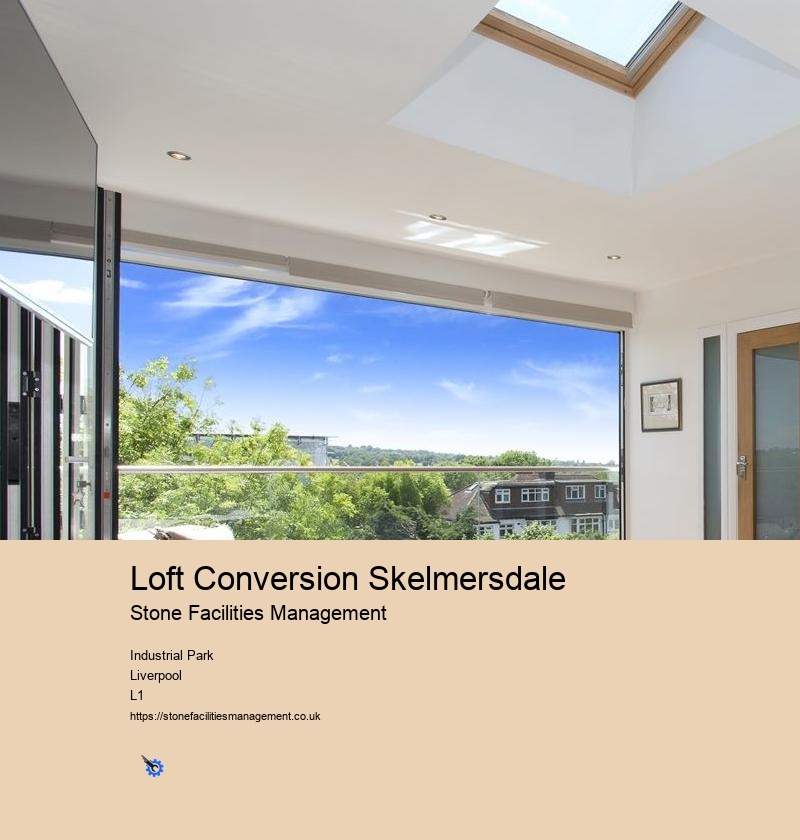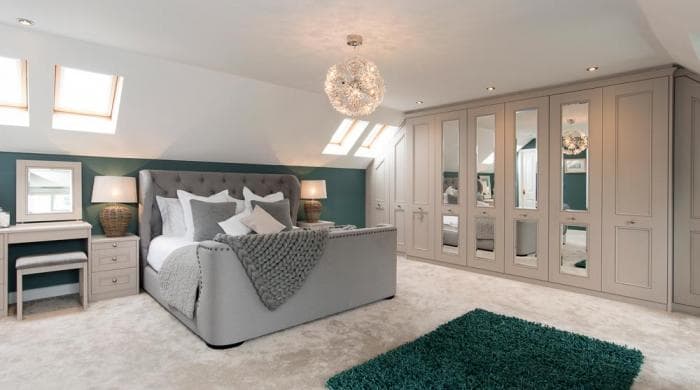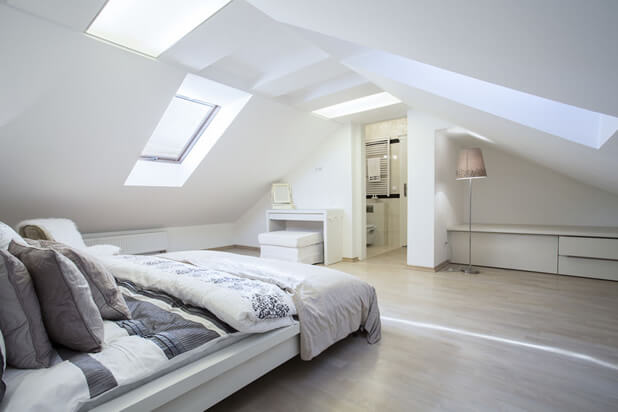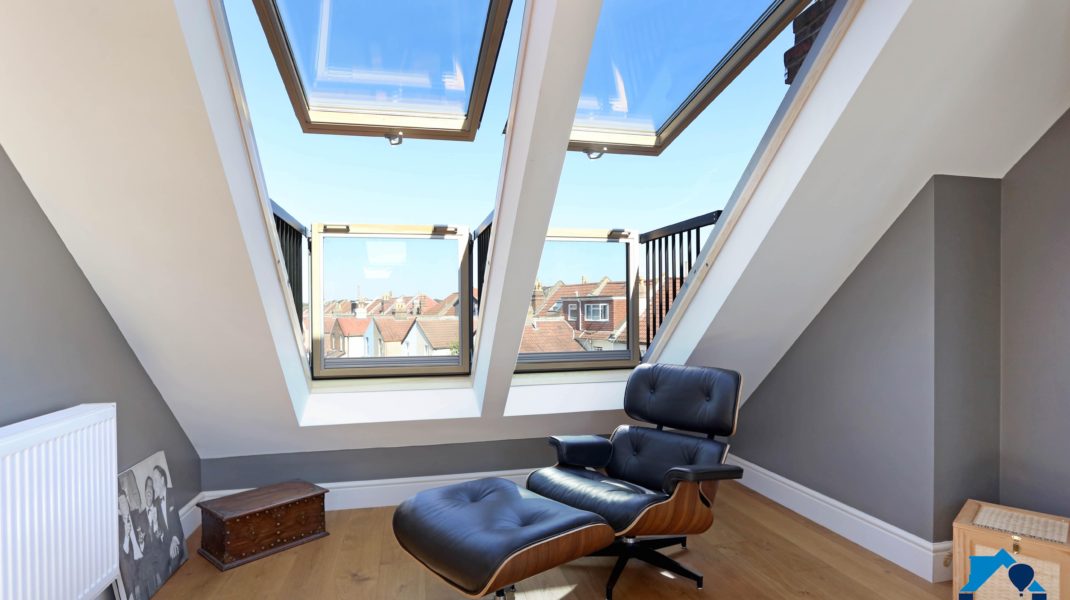Loft Conversion Skelmersdale
Loft Conversion Liverpool
Extensions provide a great way to add additional living space to your home, but they are more expensive than loft conversions. Extensions require planning permission and you will also need to factor in the cost of new foundations and structural work.
Overall, the cost of converting a loft to a dormer in Liverpool will depend on the size of the loft, the type of conversion you choose, and the materials used. But with careful planning and budgeting, it is possible to convert your loft into a comfortable and stylish living space without breaking the bank.
Another popular option for Liverpool loft conversions is the hip-to-gable loft conversion. This style of conversion involves extending the roof line along the side of the house to create a new wall of space. This style of conversion is typically more expensive than a dormer conversion, but it can provide an even larger increase in living space.
Finally, the last most expensive part of a loft conversion in Liverpool is likely to be the cost of any additional electrical and plumbing work that may be required. Electrical and plumbing work is important for any loft conversion as it helps to ensure the safety of the occupants. The cost of any additional electrical and plumbing work is based on the complexity and scope of the work needed.
Overall, converting your loft can be an excellent way to add extra living space to your home. If you’re looking to have a loft conversion in Liverpool, then it’s important to do your research to make sure you get the best value for money. The cost of a loft conversion can vary depending on the size of the loft and the type of conversion you’re looking for, but on average it can cost anywhere between £15,000 and £50,000.

Loft Conversion Liverpool
The first step to take when considering a loft conversion in Liverpool is to contact the local planning authority. They will be able to provide you with detailed information about the type of planning permission that may be required for your project. Additionally, they can provide information about any fees that may be associated with the conversion. It is important to note that some conversions may not require planning permission, however it is always best to check with the local authority before beginning any work.
It's also important to consider the cost of additional features you may want to add to your conversion. If you're planning to add a bathroom, for example, you may need to factor in the cost of plumbing and tiling.
Another option is a spiral staircase, which is a set of stairs that are attached to the wall and spiral up to the loft space. This is a great option if you have limited space, as it takes up less space than a traditional staircase. It is also a more aesthetically pleasing option, as it adds a unique touch to your home.
Loft conversions can offer a flexible and cost-effective way to create additional living space. For example, a loft conversion can be used to create a home office, a playroom, a guest bedroom, or a studio. This can be a more cost-effective solution than building a separate structure, such as a garden office or a granny annex.
When it comes to deciding which type of loft conversion is best for your Liverpool home, one of the key considerations is the amount of space you’ll lose. Loft conversions can be quite disruptive, and if you’re planning a major renovation, you’ll want to make sure that it’s worth the effort.
Loft Conversion SkelmersdaleRelevance
| Loft conversion | Attic |
| Roof | Rafters |
| Dormer | Lofts |
| Floor | Gable |
| Planning Permission | Mansard |
| Windows | Door |
| Insulation | Velux |
| Staircase | Eaves |
| Bedroom | Building Regulations |
| Bathroom | Plumbing |
| Joists | Ventilation |
| Stair | Architect |
| Ceiling | DIY |
| Hipped-roof | Building Control |
| Stud Wall | Staircases |
| Roofing | Hips |
| Joists | Stairway |
| Natural Light | Frame Structure |
Wikipedia says this about Liverpool
Loft Conversion Dormer Liverpool
Loft Conversion Cost
No matter which type of staircase you choose, it’s important to ensure that it is properly installed and meets all safety regulations. A qualified contractor can help you design and install a staircase that is both safe and aesthetically pleasing.
The third most expensive part of a loft conversion in Liverpool is likely to be the cost of the windows and doors. Windows and doors are essential for the safety and security of the converted loft, so they must be of a good quality and be installed correctly. The cost of windows and doors is usually based on the size, type, and material chosen.
In addition to the cost of the roof, there are other costs associated with the loft conversion. These include the cost of the materials used for the conversion, such as insulation and drywall, as well as the cost of labour for the installation. Depending on the complexity of the project, the cost of labour can also be significant.
Loft conversions can be a more affordable alternative to other types of home improvements, such as extensions. As they do not require the construction of new foundations or external walls, loft conversions tend to be less expensive to carry out.
If you are considering converting your loft in Liverpool, you may be wondering if it will add value to your property. The answer is yes, a loft conversion can add value to your home if done correctly. Not only can it increase the value of your property, but it can also provide you with additional living space, which can be used for a variety of purposes.
The first type of loft conversion is the rooflight conversion. This is the most common type of loft conversion, and involves removing the existing roof and replacing it with a new one. This is usually done with large steel beams and trusses, making it a relatively cost-effective option. The advantage of this type of conversion is that it is quick and easy to complete, and there is minimal disruption to the existing structure of your home. The disadvantage is that it is not as flexible as other types of conversions and can be more expensive.
The third type of loft conversion is the mansard conversion. This is similar to the dormer conversion, but it is built onto the existing roof with a steep pitch. This type of conversion is popular in Liverpool, as it is more flexible than the other types of conversions and allows for greater headroom. The disadvantage of this type of conversion is that it is more expensive and can be quite disruptive to the existing structure of the home.
The next most expensive part of a loft conversion in Liverpool is likely to be the cost of the insulation. Insulation is essential for any loft conversion as it helps to regulate the temperature inside the loft. The cost of insulation depends on the type of insulation chosen, as well as the amount of coverage needed. Generally speaking, the more insulation needed, the more expensive the project will be.
Generally speaking, a basic dormer loft conversion in Liverpool typically starts at around £20,000, with most conversions costing between £25,000 and £35,000. However, the cost can be higher or lower depending on the size and complexity of the job, as well as the contractor you choose.

Loft Conversion Dormer
In conclusion, converting your loft in Liverpool can add significant value to your property. There are several different types of conversions to choose from, each with their own pros and cons. It is important to ensure that the conversion is done properly by a professional contractor, as this will help to ensure that the value of your property is maximised.
In conclusion, when it comes to a loft conversion in Liverpool, there are several options for stairs. The best option for your home will depend on the size and layout of your space and your budget. A qualified contractor can help you design and install the perfect staircase for your home.
The cost of a roof for a loft conversion will vary depending on the size and shape of the loft and the type of material used. For example, a flat roof will be less expensive than a pitched roof, but it may not be as durable. Flat roofs are also more prone to leaking. On the other hand, a pitched roof will be more expensive and require more work, but it will also provide more headroom and be more durable.
Once you have chosen the type of conversion you want, the next step is to contact a professional loft conversion firm in Liverpool. A professional firm will be able to advise you on the best way to go about your conversion and will be able to provide you with a timeline for completion. Generally speaking, the firm will begin by assessing the area to be converted, and then will draw up plans and carry out any necessary structural work. This usually takes around two weeks.
When considering a loft conversion in Liverpool, one of the most important considerations is where the stairs will go. This is because the stairs are a key feature of any loft conversion, providing access to the new living space.
The second type of loft conversion is the dormer conversion. This involves building a new structure onto the existing roof, which is typically made from timber or metal. This type of conversion is more expensive than a rooflight conversion, but it is more flexible in terms of design and allows for greater headroom. The disadvantage of this type of conversion is that it can be quite disruptive to the existing structure of the home.
Loft Conversion Stairs
A third option is to build the stairs in the loft itself. This can be a great option for small loft conversions, as it eliminates the need for a staircase on the ground floor. However, it is also more complicated and can be prohibitively expensive.
If you're looking to maximize the living space in your home, then converting your loft is a great option. Converting a loft is a relatively straightforward process, and it can add a great deal of value to your property. But how much does it cost to have a loft converted in Liverpool?
In conclusion, if you are considering converting your loft in Liverpool, it is important to first find out if you need permission. You may need to apply for planning permission or obtain permission from the building’s freeholder. The cost of the conversion will depend on the size and scope of the work required.
Ultimately, the best option for you will depend on your budget, the amount of space you need and the type of home improvement you are looking for. Loft conversions are usually the most cost-effective option and can be a great way to add space to your home without sacrificing existing space. However, if you need more space and are willing to invest more money, then an extension could be the better choice.
However, when deciding between a loft conversion or an extension, there are other factors to consider beyond cost. For example, you should consider the amount of space you need and the type of conversion or extension that best suits your requirements. If you need additional living space, an extension can provide you with more rooms, while a loft conversion can provide you with additional bedrooms.
One option is to install a floating staircase, which is a set of stairs that is installed against the wall and does not touch the floor. This type of staircase is ideal for smaller spaces or where there is limited space to install a staircase. It is also one of the most cost-effective options, as it requires minimal construction work.


Loft Conversion Ideas
When considering a loft conversion in Liverpool, it’s important to consider the value it could add to your property. Converting your loft is an excellent way to increase the usable space in your home without having to move, and can add significant value to your house.
No matter what type of loft conversion you decide to go with in Liverpool, it’s important to make sure that you hire a reputable contractor to perform the work. Taking the time to research different contractors and make sure that they are qualified and experienced in performing loft conversions will help ensure that your project is a success.
The shape of the loft is also important. If the loft is too narrow or has too steep of an angle, then it could be difficult or impossible to make the necessary alterations to convert the space. It’s important to factor in the existing beams and joists as well, as these could limit the potential size and shape of the space.
When considering whether or not you need permission to convert a loft in Liverpool, it is important to understand the various regulations and restrictions that may apply to your project. Depending on the size and scope of the project, you may be required to obtain planning permission from the local authority. In some cases, you may also need a building regulation approval, which is essentially a set of standards that the structure must meet in order to be deemed safe and secure.
The most common type of loft conversion in Liverpool is a dormer conversion. This involves creating a new room in the roofspace by enlarging the existing roof. This type of conversion usually costs between £15,000 and £35,000, depending on the size of the loft and the materials used. The cost can be reduced by opting for a simpler design, such as a hip-to-gable conversion.
Overall, a loft conversion typically takes between 6 to 12 weeks to complete, depending on the complexity of the project and the time it takes to obtain planning permission. If you’re looking to convert your loft in Liverpool, it’s important to understand the time frame involved and be prepared to invest the necessary time and money to ensure a successful project.
Loft conversions are a great way to add space and value to your home without sacrificing existing space. They are usually cheaper than extensions, as they don’t require any new foundations or structural work. However, they do still require planning permission and you will need to ensure that the headroom in your loft is sufficient for a conversion.
Loft conversions are one of the most popular and cost-effective ways of adding additional living space to your home. But one of the major questions homeowners have when considering a loft conversion is ‘how long does a loft conversion take?’.
Loft Conversion Company
Another type of loft conversion that is popular in Liverpool is the roof light loft conversion. This type of conversion is less space-efficient than a dormer loft conversion, as it involves removing some of the roof in order to create the additional living space. However, this type of conversion is much cheaper and quicker to complete, making it a great option for those who are on a budget or who need the extra space quickly.
Are you looking to convert the loft in your Liverpool home? Before you start, it’s important to know what type of loft conversion is best for your needs. In this blog, we’ll cover all the different types of loft conversions available in Liverpool, so you can make an informed decision about which one is best for you.
Finally, it is important to remember that converting a loft into a bedroom can be a lengthy and expensive process. Therefore, it is best to consult an experienced builder or architect before beginning the project in order to ensure that the conversion is done safely and to the highest possible standard.
Finally, it’s worth exploring DIY options. If you’re willing to do some of the work yourself, you could save a lot of money. However, it’s important to be realistic about your DIY skills and to consider the amount of time it will take to complete the project. DIY can be a great way to save money, but you’ll need to be confident that you can complete the job.
No matter which type of loft conversion you choose, it is important to ensure that it is done properly. This means that you should hire a professional contractor to do the work for you. This will ensure that the conversion is done safely and to the highest standard, which will help to ensure that the value of your property is maximised.
Check our other pages :
- Loft Conversion Liverpool
- Loft Conversion Leigh
- Loft Conversion Mold
- Loft Conversion Hindley
- Loft Conversion Flint
- Loft Conversion Wigan
- Loft Conversion Southport
- Loft Conversion Warrington
- Loft Conversion Golborne
- Loft Conversion Great Sankey
- Loft Conversion Heswall
- Loft Conversion Runcorn
- Loft Conversion Saint Helens
- Loft Conversion Widnes
- Loft Conversion Skelmersdale
- Loft Conversion Ruthin
- Loft Conversion Northwich
- Loft Conversion Tyldesley
- Loft Conversion Chorley
- Loft Conversion Leyland
- Loft Conversion Westhoughton
- Loft Conversion Atherton
- Loft Conversion Rhyl
- Loft Conversion Chester
- Loft Conversion Southport
- Loft Conversion Crewe
- Loft Conversion Knutsford